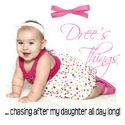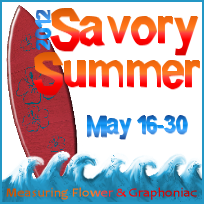Article submitted by Kathleen Thomas on behalf of Primrose Schools
Raising a child who reads well and avidly is something almost any parent would find desirable. There is a lot of evidence to support that reading experience early on - both reading and being read to – is strongly related to successful academic performance later on. The question of when to start reading to and with children thus arises. The general answer to this seems to be that the enjoyment and conceptualization of reading seems to occur in infancy or even prenatally. This essentially means that the literary bent can certainly be nurtured from the baby’s earliest life onward and may even be a trait that is naturally inherited.
Start Them Early
A well recognized way to begin familiarizing children with books is to look at picture books and point to the pictures, saying words as you do so. It is alright to do this even in a fairly exaggerated way and even to depart from the actual words that are in books. Make the experience fun and vivid for babies and toddlers. This will begin to make them feel from an early age, even before preschool that books are lots of fun and that the printed material (whether or not it is actual text) is associated with words and concepts.
Set a Reading Time
Another good practice is to set a daily reading time. To quote Robert Needlman, M.D., author of Dr. Spock’s Baby Basics: “There’s no prescription for this, the only prescription is to allow some time each day that you can sit down, connect with your child, and read together. The main thing is to allow it to occur in a way that’s joyful, that conveys enjoyment to the child – from enjoyment the rest will follow.” This regularization of the practice will help even very young children develop reading skills early on as well as enjoyment of the activity, which is also very important. The more a child forms positive, happy associations with opening books, tuning pages, and saying words, the quicker they will become readers who seek out the experience on their own.
Emphasize Enjoyment
In fact, enjoyment is perhaps the most important aspect of the whole matter. Books can become either a boring chore or an engaging, playful, and creative experience to a child. This depends largely on the associations they form with reading as an experience, and these are creative during their formative years. Thus try and make the reading experience engaging, spontaneous, and joyous.
Select the Right Books
The right books are also very important. Some things to look for are simple, rhythmic language (these qualities are especially important when reading to young children), vivid illustrations, and an engaging story line. You should also select books that appeal to you personally. The enjoyment you get from reading such a book will transfer to the child and make them more enthusiastic about it. If you get a book that you yourself find mediocre, even if you suspect your child will enjoy it, the feeling tone may come across and create a less than stellar experience for your son or daughter. A third reason to select good books is that children often like to hear the same book read to them many times. If it is a good book, it will bear repeating. Poor works tend to lose their interest more quickly.
Further Tips
Provide them with their own Library
Buy your child a wide variety of books at their current reading level, whatever that may be, and shelve them with easy accessibility in the child’s room. This simple tip will encourage them to read on their own much faster.
Read Daily and Encourage Participation
During the daily reading time make sure to encourage the child to be participatory. Perhaps you can have them try to read certain words, tell you what a picture depicts, or act part of the story out. This will get them active and involved.
Keep Books in Car for Car Trips or Waits
Car trips are great times for a child to read since there are long periods of relative idleness. So leave books in the car for these occasions. The child may also read these books while waiting in the car at gas stations, toll booths, friends’ houses, and so on.
Reading Aloud and Creativity – Good Signs
Slightly older children may begin to read their favorite books aloud. They may also make up
new stories to go with the pictures in a picture book. Both of these are good signs from a reading and comprehension standpoint. It not only signifies their growing independence and reading skill but indicates that they realize books are meant to communicate stories.
An important part of the mission of every child is to learn how to speak and master language in all its forms. This allows them to communicate with the world of older children and adults. Talking to children and singing with them is one way this occurs. Reading is another powerful part of this process. Children need to be nurtured cognitively in order to develop the best communication, verbal, and conceptual skills. So pick out some great books and begin enjoying the fun activity of reading to them now!
skip to main |
skip to sidebar
Chronicles of a late 20s PR friendly gal about town. Fashion, design, decor, food, travel, creating, and style are covered. I also like to do product reviews and giveaways.
About Me
- Greta
- PR friendly single girl about town lifestyle blogger. Fashion, style, creating, food and travel are covered. I also do product reviews and giveaways. Wanna pitch me? See my PR kit.
Grab My Button
center] "/>
"/>
 "/>
"/>Labels
- 2 truths 1 lie (2)
- 2012 (1)
- about me (4)
- accessories (1)
- alexa (9)
- animals (2)
- artisan (2)
- autumn (3)
- bath and body (14)
- beauty (17)
- blog hop (48)
- blouse (1)
- bluebird beauty (1)
- book report (18)
- bracelet (2)
- bumbershoot (1)
- california (1)
- charity (1)
- children (7)
- chinese new year (6)
- christmas (5)
- coat (1)
- computer (2)
- contest (9)
- cooking (6)
- cosmetics (1)
- craft (9)
- create (7)
- deals (2)
- decor (1)
- diy (1)
- dogs (3)
- dress (1)
- earrings (8)
- eco friendly (5)
- entertaining guide (5)
- fab five (8)
- facebook (1)
- fairs and festivals (2)
- fashion (26)
- fashion friday (14)
- food (23)
- for him (1)
- freebies (9)
- frugal tips (1)
- fun and games (1)
- gift guide (9)
- giveaway (101)
- going green (2)
- guest posts (1)
- hair (2)
- handmade (1)
- health and fitness (4)
- hockey (1)
- holiday (8)
- home (4)
- house (1)
- household (1)
- how to (3)
- HWYD Happenings (6)
- jewelry (27)
- kansas city (1)
- kids (9)
- leapin lizards (1)
- life (3)
- luxury (2)
- make up (3)
- men (1)
- movies (1)
- music (4)
- my ugly place (3)
- natural (1)
- necklace (6)
- odd news (2)
- oregon (1)
- organizing (2)
- outside (1)
- paper (3)
- pet store (1)
- plaid (1)
- printable (1)
- projects (1)
- purses and bags (5)
- random thoughts (1)
- recipes (7)
- review (23)
- rewards programs (1)
- ring (2)
- road trips (3)
- safety (1)
- samples (1)
- sawdust festival (1)
- scarf (2)
- seattle (1)
- self empowerment (1)
- shoes (3)
- skincare (1)
- skirts (1)
- software (2)
- sponsor opps (1)
- sponsors (1)
- stationery (6)
- storage (1)
- stumbe tumble tuesday (1)
- style (10)
- sweepstakes (2)
- tips (1)
- travel (5)
- tutorial (4)
- tv shows (4)
- Valentines day (1)
- wordless wednesday (14)
- you can make it (9)
- zuuzs (1)
ShareThis
Powered by Blogger.
ShePromotes Network
Search HWYD
Current Giveaways
Google Plus
Followers
Friends
Networked Blogs
Blog Archive
-
▼
2011
(203)
-
▼
November
(50)
- Holiday Dress Up with Designs By Lolita - Holiday ...
- Softlips Winter Flavors Lip Balm Set - Give It Awa...
- Roadside Ducks - Wordless Wednesday - #WW
- Softlips Lip Balm Winter Flavors - Review - Gift G...
- Awesome FREE Beauty Sample
- Eco Foil Give It Away - 12 Days of Gifts Galore #...
- Left of Trend Give It Away - 12 Days of Gifts Galo...
- Dulce Mio Gift Certificate Give It Away - #12Days...
- Peace Earrings - Give It Away - WW
- Left of Trend - A New Shopping Experience
- Dots Printable Set - GlVEAWAY - WW
- PunchTab - What is it?
- Groovy Christmas CQ Kit - Home For The Holidays Gi...
- Hopping for your Honey - Blogger Sign Up
- All For Love Valentine’s Event – Blogger Sign-Ups
- Striped Shirt is Really Fun - Winner Wonderland Sp...
- Who Wants a Let It Snow Necklace
- Chinese New Year Blog Hop - UPDATE!
- Alexa Stop, Hop, and Drop - Vol 9
- Wordless Wednesday: Animals
- Pokemon the Movie Giveaway YAY - US
- HWYD Happenings
- Under The Tree Giveaway Hop - $100 in Kid Prizes
- Made With Love Giveaway Event #madewithlove
- Check Out Tiny Prints Cards
- Fashion Friday: Tights
- Calgary -A Great Place to Live
- Alexa Stop, Hop, and Drop - Vol 8
- ZOMG Puppies! - Wordless Wednesday
- Mederma Stretch The Truth Game + Giveaway - US
- Carlotta Clutch Bag Giveaway - #madewithlove - WW
- Inspired by Ashlynn - Giveaway #madewithlove - US
- Thomas & Friends™ TrackMaster™ Giveaway - Under Th...
- Kids Books Prize Pack - #UnderTreeEvent - Giveaway
- Inspired by Ashlynn - Sponsor Spotlight #madewith...
- Thomas & Friends: Day of the Diesels - Sponsor Sp...
- Aeroplane Necklace - Giveaway YAY - WW
- Take the North "Poll" and Save 25% at MelissaAndDo...
- Sewing a Friendship by Natalie Tinti - Children's ...
- Along Came You - Children's Book Review
- Fashion Friday: Ways to Wear Scarves
- Chinese New Year Blog Hop - SIGN UP!
- Rockabilly Inspired Vintage Bobby Set - Giveaway Y...
- Alexa Stop, Hop, and Drop - Vol 7
- Braided Headband Tutorial - You Can Make It
- Raise a Reader - Guest Post
- Simply Celebrate Giveaway YAY - US
- Posh Locket Jewelry Giveaway - Trick Or Treat Hall...
- A day in the Country - Wordless Wednesday
- Blush Hand Dyed Silk Scarf - Giveaway YAY
-
▼
November
(50)




















0 comments:
Post a Comment